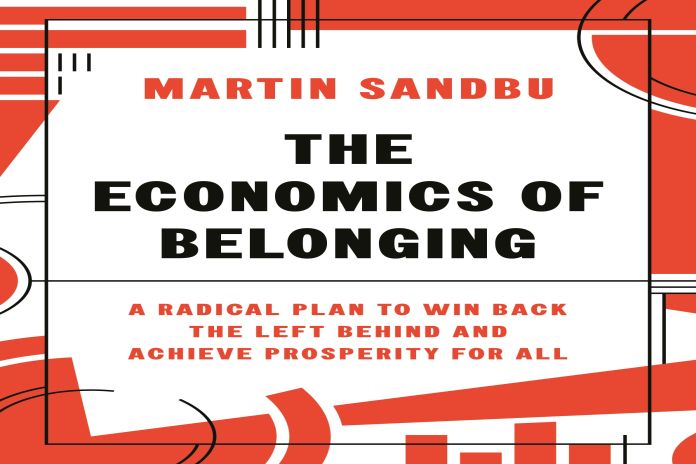Book Review
The International Monetary Fund (IMF) fiscal affairs department, deputy director Paolo Mauro reviewed The Economics of Belonging by Martin Sandbu.
“The premise of the book is that behind today’s political illiberalism and rejection of globalization is a widespread feeling that economic opportunities are reserved for an elite to which ‘normal people’ do not belong,” writes Mauro. “This book is a thorough and compelling overview of recent economic analyses of the factors underlying the electoral travails of the democracy/globalization model. I would have liked the author to venture more into the art of political persuasion. Even if the ultimate source of discontent is economic, political messages that resonate with people’s moral preferences stand a better chance of passing through parliament.”
Read the review
Martin Sandbu sets out an ambitious policy agenda to recreate an economy where everyone feels they belong. Readers of his “Free Lunch” columns in the Financial Times will not be surprised by his sophisticated economic analysis and engaging presentation.
The premise of the book is that behind today’s political illiberalism and rejection of globalization is a widespread feeling that economic opportunities are reserved for an elite to which “normal people” do not belong.

Many influential authors—such as Pippa Norris and Ronald Inglehart, of Cultural Backlash fame—have presented evidence that individuals’ political choices are better explained by personal values than by economic factors. More bluntly, according to these authors, people who vote against immigration prefer “their own kind.” The implication is that globalization has proceeded too rapidly and needs to be slowed down to allow native populations to preserve their culture.
Sandbu points out, however, that economic drivers are more visible at the level of places than of individuals. Areas of economic decline have few immigrants—in fact, they are unable to attract newcomers from abroad—yet they turn against immigration. He argues that economic grievances express themselves as cultural backlash. People embrace forceful leaders because the illusion of collective control compensates for lack of personal control over their economic circumstances. If Sandbu’s assessment that cultural backlash is ultimately caused by economic factors, then better economic policies have a fair chance of restoring the viability of the political and economic model based on democracy and globalization.
His proposed policy package pushes the boundaries of the economics consensus but is not going to shock those who have followed recent debates. Key elements include net wealth taxes, universal basic income (or negative income taxation), and carbon taxes and dividends. Drawing on positive lessons from his native Norway (and an intriguing comparison of automated car washes in Scandinavia and their labor-intensive equivalent in the United States), Sandbu calls for de facto minimum wages. These force employers to select more productive processes, rather than creating low-skill jobs.
To avoid the risk of unemployment for the low skilled, he calls for higher spending on education and retraining, as well as forceful demand stimulus. Economists will enjoy debating the pros and cons of each of these policies. Sandbu reasonably points out that they complement one another and work only as a package.
This book is a thorough and compelling overview of recent economic analyses of the factors underlying the electoral travails of the democracy/globalization model. I would have liked the author to venture more into the art of political persuasion. Even if the ultimate source of discontent is economic, political messages that resonate with people’s moral preferences stand a better chance of passing through parliament.
Sandbu takes tentative steps in this direction. For example, he presents an intriguing right-wing perspective on universal basic income. He also points out that piecemeal reform efforts may be easier to block than his ambitious package. This reader hopes for more analysis of how to overcome political obstacles in Sandbu’s next columns and books.





